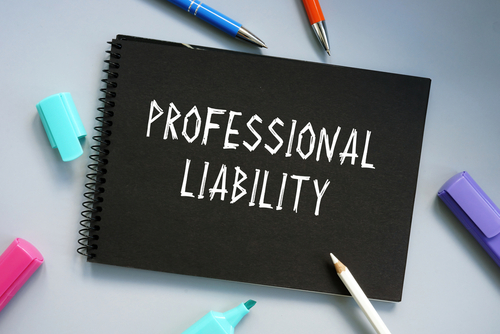Although most service professionals prioritize taking good care of their clients and providing them with the best possible guidance, mistakes can still happen. When these errors occur, clients could face considerable harm, prompting them to hold service professionals accountable for their wrongdoings and leading to costly lawsuits. Fortunately, that’s where professional liability insurance can help. This coverage can provide financial protection for losses resulting from a client alleging that errors, negligence or mistakes in a professional’s services caused damage or injury. In other words, professional liability insurance plays a major role in helping organizations preserve their finances and minimize reputational damage amid such litigation.
With this in mind, organizations should understand this coverage and its main protections. This article highlights the value of professional liability insurance by explaining common policy features and outlining key coverage benefits.
Common Policy Features
Professional liability insurance can help reimburse organizations for the expenses that may stem from clients alleging they were harmed due to inadequate or negligent services. This coverage is particularly vital for organizations that frequently provide professional services or give advice to clients. Specifically, lawyers, accountants, architects, health care providers, contractors, consultants, real estate agents, government officials and financial advisors may benefit from professional liability insurance. In some states, service professionals may be legally required to purchase this coverage to obtain proper business licensing, secure contracts or work in certain settings. Depending on the industry, professional liability insurance may have different names, including errors and omissions coverage and malpractice insurance. In any case, this type of policy generally consists of the following components:
- Coverage for legal defense expenses—This includes hiring a defense attorney, utilizing expert witnesses and handling any court fees. For example, if a client alleges that an architect’s oversight led to structural issues and subsequent property damage to their home, this coverage may help the architect pay an attorney to defend them against this claim.
- Coverage for damages—This includes providing any compensation legally awarded to disgruntled clients, including financial judgments, settlements and reparations. For instance, if a client alleges that their accountant filed their taxes incorrectly and caused them to pay more than they owed, and a judge rules that the accountant must reimburse the client for the losses they incurred due to this error, this coverage can assist with such compensation.
Key Coverage Benefits
Organizations may need professional liability insurance for a wide range of reasons. Here are some key coverage benefits for organizations to consider:
- Financial stability—First and foremost, professional liability insurance can help organizations prevent costly litigation from wreaking havoc on their finances. Since service-related lawsuits can carry substantial losses, maintaining financial stability amid these incidents is crucial.
- Protection for possible errors—Even with sufficient employee vetting protocols, training regimens and review processes, mistakes can occur while providing professional services. All it takes is a single clerical error, oversight or miscommunication to harm a client and prompt a lawsuit. Organizations will be better equipped to respond to these mistakes by securing professional liability insurance.
- Lawsuit mitigation—In today’s increasingly litigious society, lawsuits against organizations have risen in frequency and severity. Some of the most common service-related lawsuits involve allegations regarding missed project deadlines, incorrect advice and negligence. With professional liability insurance, organizations will receive simplified access to much-needed legal resources, giving them the ability to handle these lawsuits more effectively. What’s more, this coverage can also help organizations better defend against baseless allegations, thus mitigating frivolous lawsuits and reducing the likelihood of such litigation causing widespread business disruptions and reputational damage.
- Enhanced credibility—Clients are more likely to trust organizations with risk management and loss control measures, including a robust insurance portfolio. Some clients may even require organizations to prove that they have certain forms of coverage—including professional liability insurance—before utilizing their services. As such, organizations that purchase this coverage can demonstrate to their clients that they are committed to protecting these individuals and their own operations against possible losses.
- Additional security beyond a contract—While business contracts are intended to safeguard all parties involved in a project or transaction and clearly outline each party’s potential liabilities, such documentation may not offer ample protection against service-related lawsuits. Purchasing professional liability insurance can provide organizations with an extra layer of security as they enter new business contracts and take on more clients, limiting possible financial gaps and legal exposures.
Conclusion
Professional liability insurance can make all the difference in helping organizations reduce the fallout stemming from allegations of service-related oversights and wrongdoings, allowing them to foster ongoing operational success. By reviewing common policy features and key benefits provided by such coverage, organizations can tailor their professional liability insurance to their needs. Contact us today for more insurance solutions.
